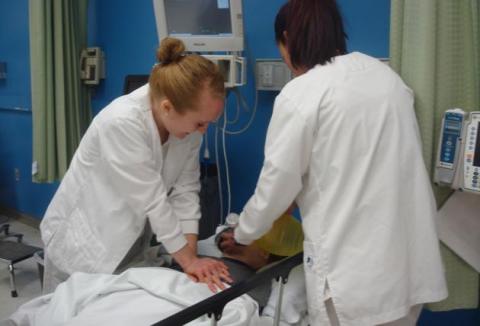Three Things You Should Include in a Cover Letter
Oct 09,2015
Many employers require job applicants to submit cover letters in addition to their resumes and applications.
While cover letters are typically only three to four paragraphs long, many people aren’t sure what information should be included and what should be left out.
If you need to write a cover letter but aren’t sure where to begin, here are a few things you should be sure to include in your letter.
1. The position for which you are applying
In your introductory paragraph, state your name and the name of the position for which you would like to be considered.
Your potential employer may be looking through applications for many different positions, so making your position of interest clear from the beginning can make it easier for the employer to evaluate your qualifications for the specific position you want.
This also lets the employer know that you took the time to customize the letter to the position for which you are applying. Many applicants choose to make one generic cover letter for every position they apply for, and while this may be convenient for you, it can be frustrating for an employer.
2. Your relevant experience and personality traits
In your second paragraph – or in your second and third paragraphs if you plan to write four total paragraphs – highlight your positive personality traits and your most impressive and relevant work experience.
Because your resume likely has an entire section dedicated to past work experience, focus on your personality traits in your cover letter, and back them up with examples from your work experience.
For example, you may want to let the employer know that you are hard-working. You should not simply write, “I am hard-working,” and leave it at that.
Instead, explain to the employer why you are hard-working. If you have had prior work experience, provide an example from a previous job of when you demonstrated that quality.
If you have not had any previous work experience, describe a time in your day-to-day life that proves you are hard-working.
The important thing to remember is to not strictly repeat information on your resume. The purpose of your cover letter is to complement and elaborate on your resume, not to copy it directly.
3. An expression of gratitude
The closing paragraph of your cover letter should express your appreciation for the employer for reviewing your application materials.
This may seem trivial, but thanking the employer for looking over your application shows you are courteous and thoughtful, two personality traits employers appreciate in an employee.
Once you have completed your letter, be sure to proofread for grammar errors or typos. If an employer spots several obvious errors in your letter, he or she may immediately discard it, especially if there are hundreds of other applicants to consider.
Above all, if your cover letter sounds professional and includes all the necessary points, it can truly make all the difference.






